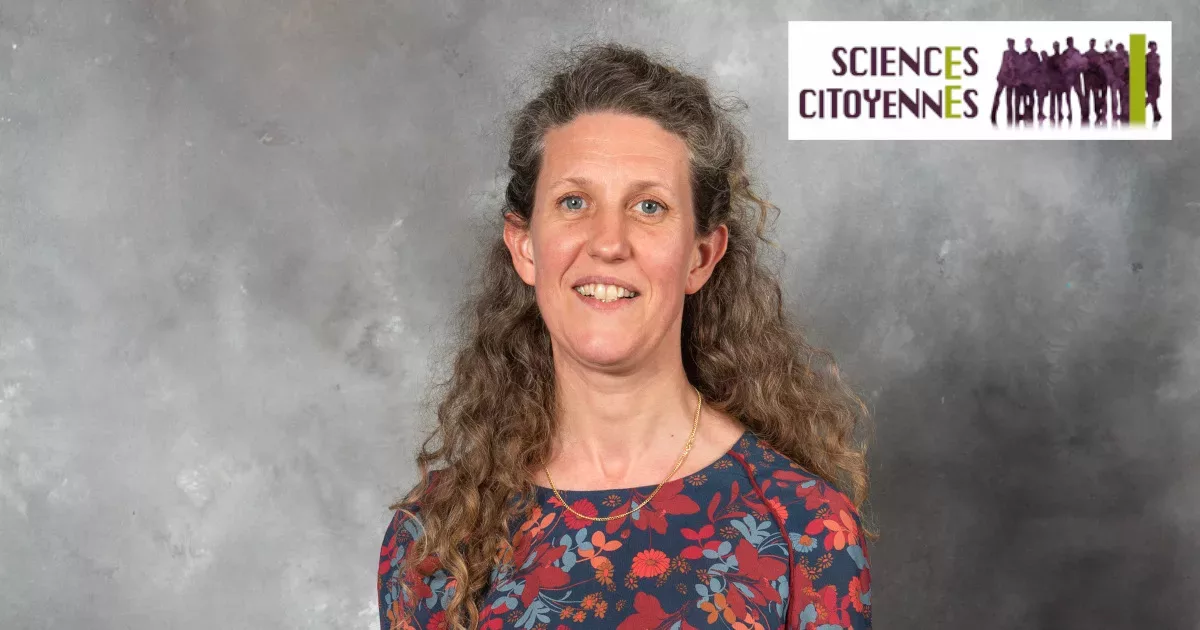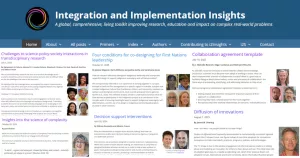Aude Lapprand: “Scientists should not have a monopoly on knowledge production”
The association Sciences Citoyennes acts to ensure that citizens have a say in the organization of research and its orientations, to equip society for an ecological and inclusive transition

What is Sciences Citoyennes?
Aude Lapprand: It is an association, founded in 2002. At the start, there were reflections carried out by Science & Technology Studies (STS): the co-founders gathered through a critical vision of science, in connection with 1970s movements that questioned hegemonic sciences. These founders came from the humanities and social sciences and from the experimental sciences. Some of them were themselves impacted by this majority science, as well as whistleblowers, such as Jacques Testart, who criticized his own experimental research practices on medically assisted procreation, André Cicollela, who studied the dangers of glycol ether, and Catherine Bourgain, who described how biology research was monopolized by the issue of GMOs.
What were the goals of these founders?
A. L.: The Sciences Citoyennes charter highlights the proliferation of environmental, health and other crises. In this context, it asserts that there is an urgent need to bring together different forms of knowledge to respond to the challenges posed by these crises: the only “legitimate” sciences from academia will not be enough. It is the hybridization of different kinds of knowledge that will enable citizens to find a way out of the current crises. With these multiple crises, it is necessary to stop thinking about science as mean of mastering nature: science should serve common good, and be designed with and for citizens.
So, the members of Sciences Citoyennes are professional scientists?
A. L.: No. The level of education of our 200 or so members is quite high: mostly master’s degree and above. But we are not a collective of scientists: we wish to be open to all citizens who combine strong militant convictions and an interest in science, without necessarily being professionals. Many of our members join us because they are initially motivated by a particular techno-scientific controversy: geo-engineering, nuclear power, GMOs, etc. And they discover that the underlying questions are the same in all areas: who are the experts? How is the regulatory question formulated? What research choices have been made? How can a truly democratic debate be created on this scientific issue? Sciences Citoyennes conducts a cross-fields reflection on these different themes.
And so, what actions does the association take?
A. L.: We have defined five axes, in which we are more or less active depending on the period: reorienting research, making research and expertise more accountable, producing a critical analysis of techno-sciences, supporting the third scientific sector and mobilizing with civil society.
Reorienting research: what does that mean?
A. L.: It starts with analyzing public research strategies at the regional, national and European levels, to find out what public decision-makers want to encourage as a research orientation. And it continues with reflection and proposals on the ways in which citizens could influence these research orientations. Since 2007, we have worked extensively on citizens’ assemblies, in line with what the Danish Board of Technology did in the 1980s. It is a democratic process that needs to be well-framed to avoid abuses and instrumentalization, as we saw in France in 2019 and 2020 with the Citizens Convention on Climate. It is also a topical issue: thanks to our work, in January 2025 French parliamentarians tabled a proposal for a constitutional law on citizens’ assemblies. The aim is for the mechanism to be enshrined in the Constitution, with precise rules on who can convene it, who organizes it, how the steering committees are constituted, how representative democracy interacts with participatory democracy, etc. And we also propose that 10% of the public research budget be allocated each year by one of these citizens’ assemblies.
What is you action at the European level?
A. L.: Research funded by the European Union is organized by the Horizon Europe framework program, which is discussed every six years. This program is extremely structuring, both because of the money it mobilizes and because it defines major trends for research, that other funders often follow. At each deadline, we try, with a coalition of other organizations from other European countries, to influence both the content and the way the content is made. We support, as in France, the proposal that part of the framework program budget be allocated by a citizens’ assembly.
What are your suggestions relative to the direction this framework program should take?
A. L.: In 2019, together with AtEcoPol Toulouse and Engineers Without Borders, we drew up our own version of a European framework program for research, with the aim of achieving an ecological and inclusive transition. What research do we need to make this transition a success? The result was a text of about a hundred pages, with 400 priority research questions, which was clearly different from Horizon Europe: our horizon was not growth and industrial competitiveness! This text is a tool that we also use to advocate the idea, if there was still any need to prove it, that science is not neutral.
What are your actions for the second axis, making research and expertise more responsible?
A. L.: In 2018, we wrote a Manifesto for Responsible Scientific Research and organized a series of three symposia on this issue: the first focused on the responsibility of research institutions, how they are organized, what kind of research they promote and what this produces; the second was devoted to the professional responsibility of researchers; the third focused on proposals to make scientific research truly responsible.
Are you involved in the work on RRI, supported by the European Union in particular?
A. L.: We are more radical. In particular, we criticize the notion of academic freedom, according to which only research professionals decide what they work on. This academic freedom is used, in some cases, to legitimize some sciences, without discussion. Sciences Citoyennes considers that research orientations are, above all, political choices, and that it is necessary for citizens to take a close interest in them and be able to influence them.
The third focus you mentioned is the critical analysis of technosciences.
A. L.: The idea is to have a cross-disciplinary analysis of different controversies. At one time, we worked a lot on nanoscience and GMOs. During COP21, we worked on geoengineering. Today, we are less active in this area.
Can you tell me about your support for the scientific “third sector”?
A. L.: The scientific “third sector” is the whole range of knowledge producers that are not linked with the academic or industrial world. There are huge reservoirs of knowledge that come from associations, groups of patients, groups of concerned residents, consumers, etc., which are not considered legitimate and are rarely listened to when public decisions are made. Our goal is both to promote this scientific “third sector”, to show the wealth of knowledge that is produced within it, and also to ensure that it could collaborate with the academic world when needed.
So you support the development of participatory science?
A. L.: We are more interested in participatory research. Participatory science is the broad category of all scientific practices in which non-research professionals are involved. A classic example is the collection of naturalistic data by amateurs. We talk about participatory research when there is a real hybridization between academic knowledge and so-called lay knowledge. When a collective or an association that has developed its own knowledge on a subject begins to formulate a research need, and this research need coincides with the interests of academic researchers, then together they can produce a new, hybrid research question. In a participatory research project, all the participants work together at every stage: data collection, analysis, interpretation, communication of results. The aim is to break the monopoly of professional scientists on the production of legitimate knowledge.
Could you give us some examples?
A. L.: Sciences Citoyennes itself was involved in a participatory research project in the 2000s on citizens’ assemblies. In particular, we worked with lawyers. One of the applications of the results of this project is the law project I mentioned. But, in general, we tend to get involved in order to develop advocacy and to help set up participatory research mechanisms. For example, in 2018, together with ADEME, we created the CO3 scheme, which supported around sixty participatory research projects, thanks to three calls for projects. A novelty introduced by CO3 was the possibility to finance the emergence phase of a project, i.e meetings between association partners and university partners to enable them to jointly construct research issues, which they were then able to present to traditional research funders. Today, we are advising the University of Paris Nanterre on setting up training courses in participatory research and, if possible, on establishing a science shop.
And for your last area of action, mobilizing with civil society?
A. L.: We have created the Mouvement pour des Savoirs Engagés et Reliés (MSER) (Movement for Engaged and Connected Knowledge) with other organizations, in order to strengthen our mutual actions and to have the legitimacy of our knowledge recognized. One of the missions that MSER has set itself is to “sow doubt”: to sow doubt among people who are beginning to question their professional practices, and how their research fits into the bigger picture. Some researchers experience cognitive dissonance between their civic commitments, for the climate for example, and the nature of their research.
So, this axis concerns only researchers?
A. L.: It is true that the MSER is made up of many research collectives, but this is not exclusive. In the Journées des savoirs engagés et reliés (Engaged and Connected Knowledge Days) that we have organized twice, the round tables systematically bring together researchers and associations, and each one contributes its own vision and knowledge on the subject at hand. And in this fifth axis, we are conducting experiments with citizens. For example, currently, we are developing a “Citizens’ Council on Pandemics” in Montpellier, south of France, which could be mobilized quickly in contexts of environmental or health crises, in order to gather information and make useful recommendations to all citizens.
Interview by Luc Allemand
SUBSCRIBE TO OUR NEWSLETTER
To stay up to date with our projects and the development of the EHC
Read more articles

WAAS Talks on Science for Human Security: Renewable Energy
On 23rd February 2026, an expert panel will discuss renewable energy as part of the EHC-WAAS program of sciences for

Gian Francesco Giudice: “Ethical responsibility is essential in fundamental research”
From hypothetical black holes to environmental impact studies, CERN navigates risk, transparency, and moral responsibility at the frontiers of human

Dealing with the complexity of society and environment
A global toolkit for tackling complex problems with more than 600 different methods Ever wish you had a free toolkit

The Moon & the Global South: Voices, Risks & Promise
Researchers warn that without inclusive governance, the Moon could become “a new arena for old patterns of exclusion” When rockets